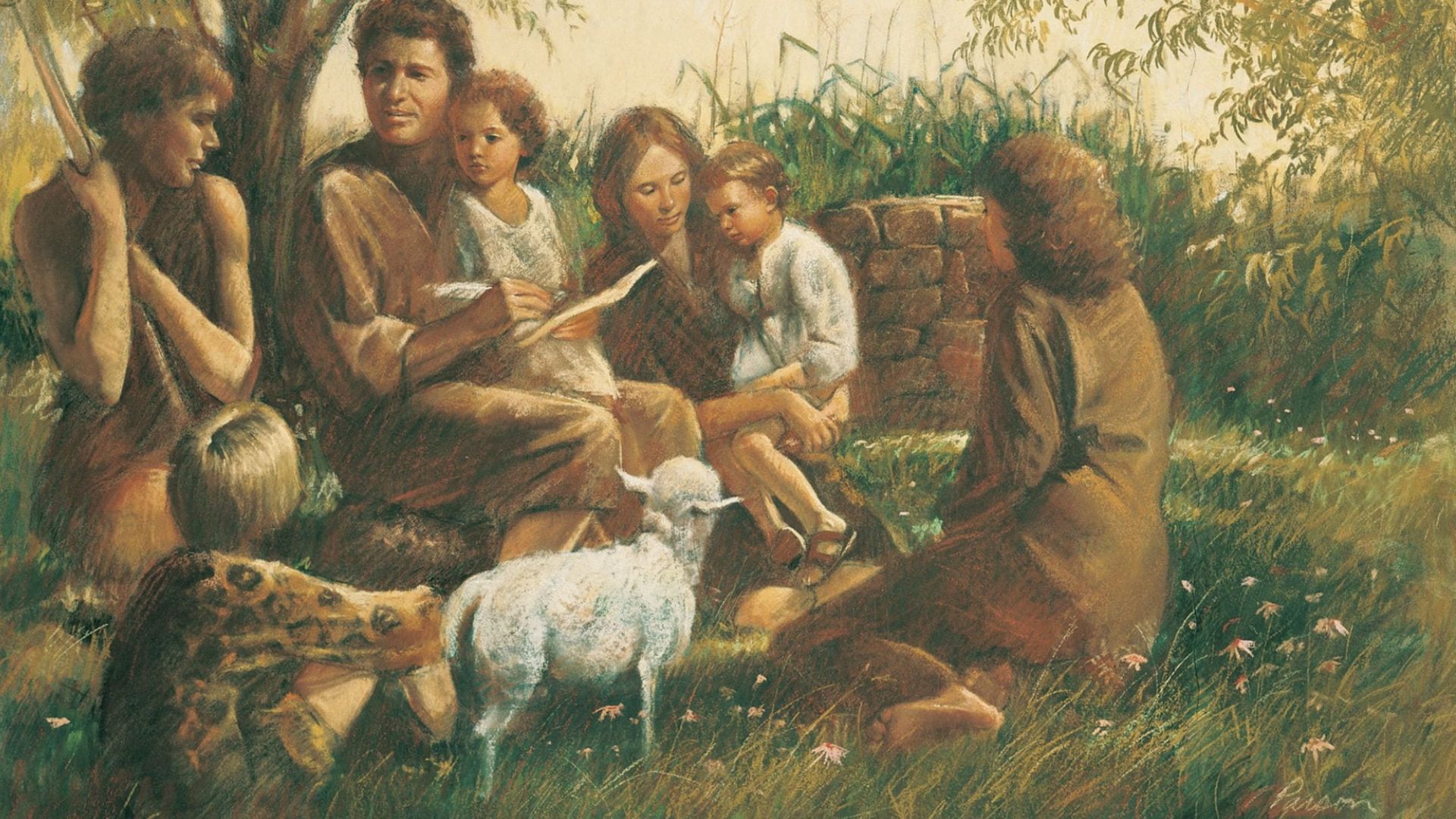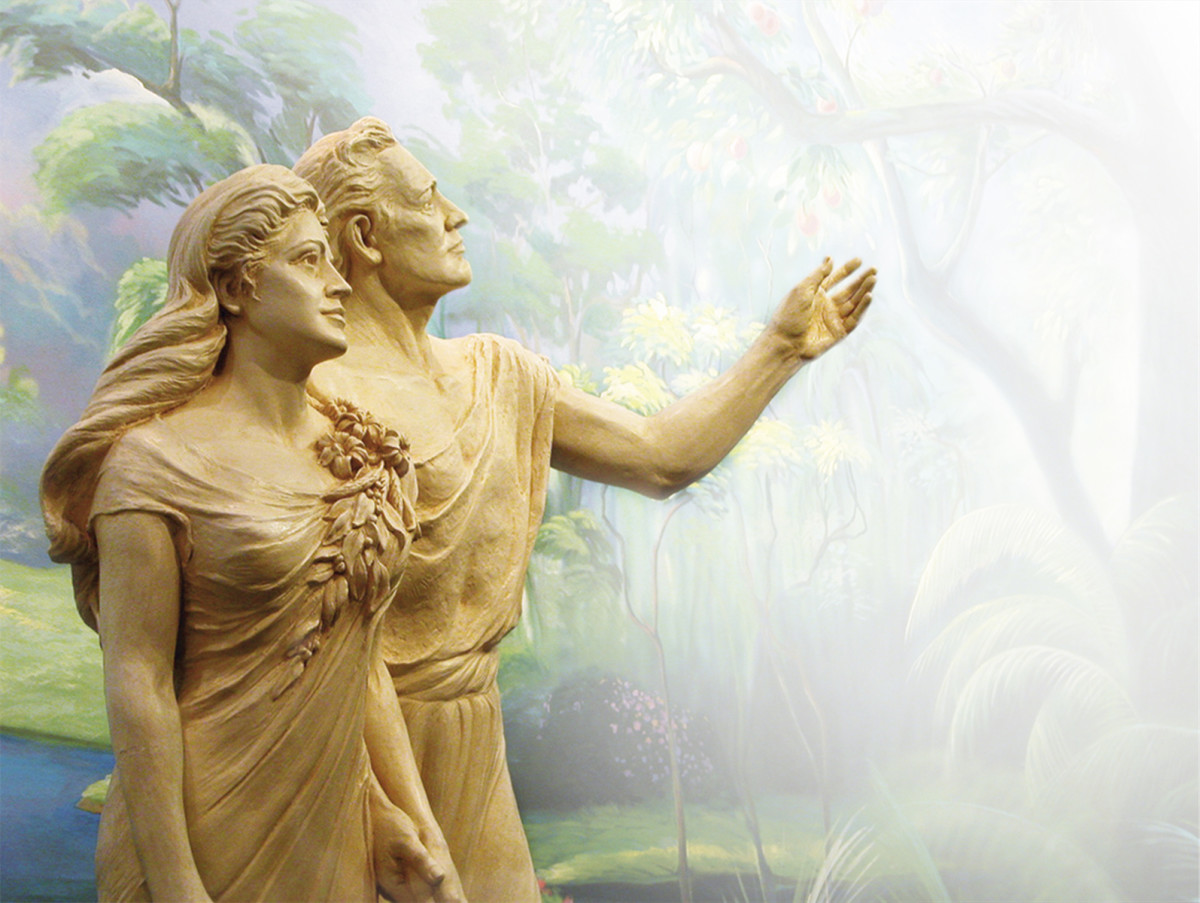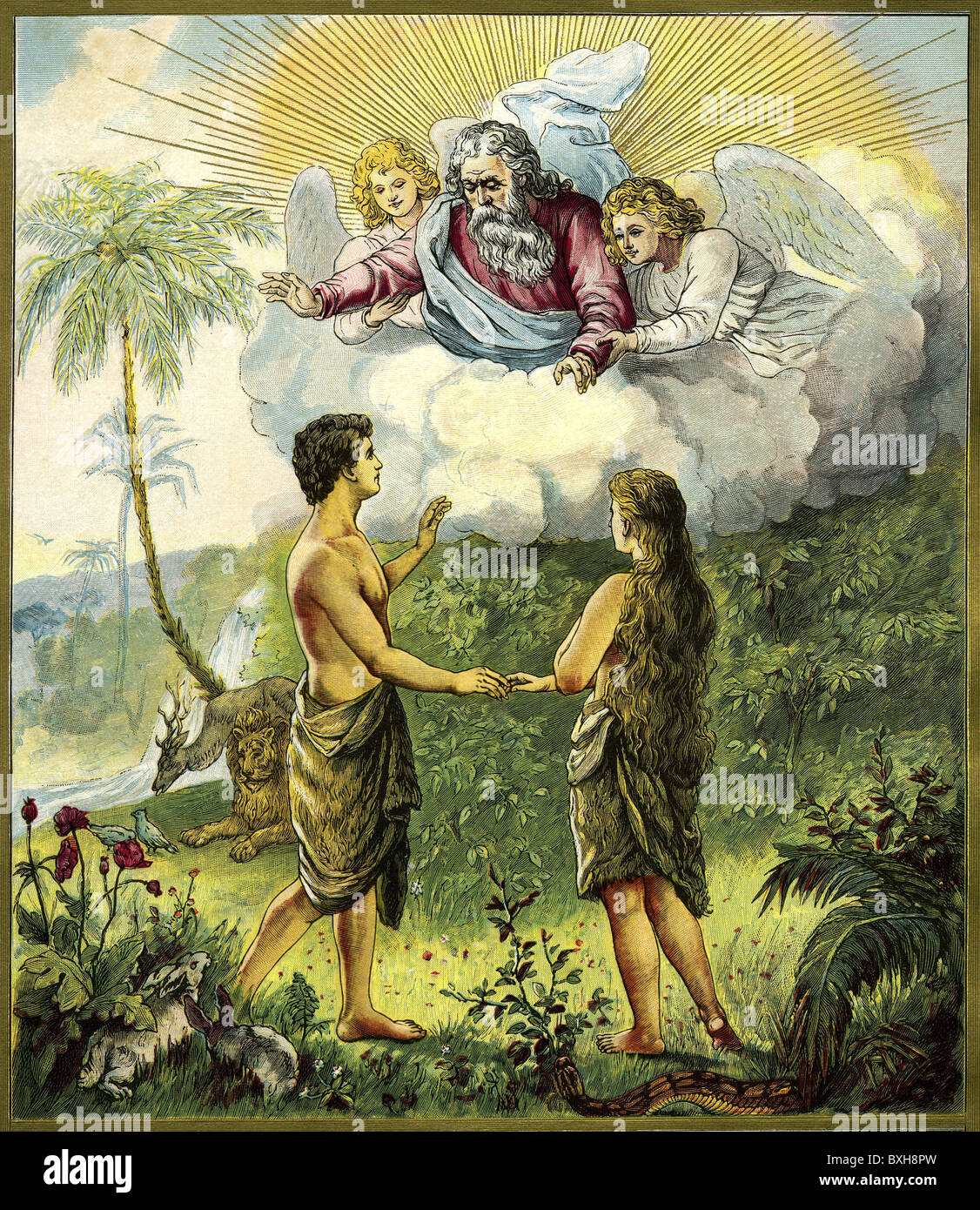Many folks, you know, often wonder about public figures and their personal lives, perhaps searching for details like, "who is Adam Pearce married to?" It's a natural curiosity, really, when someone's name pops up, especially if they are in the public eye. People want to connect with stories, with the human side of things, and a person's marital status can sometimes be a part of that larger picture. So, it's pretty common for these kinds of questions to arise in our everyday searches.
However, when we look closely at the information provided for this discussion, it seems we're guided down a rather different path. The text we have to work with, in a way, points us not to a contemporary individual named Adam Pearce, but rather to a much older, more foundational figure. It’s almost as if the inquiry leads us back through time, back to the very beginnings of recorded human stories, which is quite fascinating, if you think about it.
So, instead of uncovering details about a modern-day Adam Pearce and his family life, our given material actually invites us to explore the ancient and profound meaning of the name "Adam" itself. This journey, as a matter of fact, takes us into significant historical and religious texts, where "Adam" holds a truly central place, shaping how many cultures understand humanity's origins and early experiences. It's a look at the "Adam" that has been talked about for centuries, you know, the one with deep roots.
- Vrchat Black Hair Textures
- Valentines Day Quotes For Friends
- Hair Style Of India
- Link Cosplay
- Drawing Monkey
Table of Contents
- About the Name "Adam" in Ancient Texts
- The Biblical Narrative of Adam and Eve
- Adam's Creation and Purpose
- The Garden of Eden and Temptation
- The First Union: Adam and Eve
- Gnostic Perspectives on Adam
- Adam's Significance for Humankind
- Unrelated Information: Managing Hiring with Indeed
- Frequently Asked Questions
About the Name "Adam" in Ancient Texts
The name "Adam," as it turns out, carries a lot of weight and meaning, particularly within ancient writings. For instance, Genesis 1, a really old text, tells a story about God's creation of the entire world and all the living creatures in it. In that account, the Hebrew word "adam" is used, and it means "humankind." So, in that initial telling, it's a broad term, referring to all people, you know, the whole human race.
Then, in Genesis 2, the narrative shifts slightly, and the meaning of "Adam" becomes a bit more specific. Here, God forms "Adam," but this time, the word refers to a single male human being. This distinction is pretty important, as it sets the stage for the story of the very first individual person. It’s a very particular kind of creation, really, setting this one male human apart.
This dual meaning of "Adam" – both as a general term for humanity and as a specific individual – is quite interesting. It suggests a deep connection between the individual and the collective, a bond that has been explored in countless stories and philosophies ever since. It’s almost as if the name itself holds a kind of allegorical truth, pointing to both our shared origins and our individual journeys, you know, in a rather profound way.
- Toy Car Down Track Clipart
- Great Pyrenees Australian Shepherd Mix
- Hand Tattoos Men
- Layered Hair Men
- ブラウンスカート コーデ
So, when people talk about "Adam" in these ancient contexts, they are often referring to this foundational figure, the first man, whose story has resonated through generations. It's a name that signifies beginnings, a starting point for all of us, in a way. This is the "Adam" that the provided text talks about, not a modern person with a surname, but a figure of deep historical and spiritual significance, you know, a very important character in the story of humanity.
The Biblical Narrative of Adam and Eve
The biblical account of Adam and Eve is, as a matter of fact, one of the most widely known stories in the world, serving as a cornerstone for many belief systems. It tells us that Adam and Eve were the very first humans, created by G-d on the sixth day of creation. They are seen as the ancestors to all of mankind, which is a pretty significant role, if you think about it.
Adam's Creation and Purpose
Adam's creation, as detailed in the Bible, is quite specific. He was, in a way, formed by God from the dust of the earth. This act of creation, you know, from something so basic, highlights a profound connection to the earth itself. Adam, in the Bible, is the first human being created by God, and this makes him a truly unique figure.
He plays a central role in the biblical narrative, especially in the book of Genesis. He's not just a character; he is, arguably, considered the progenitor of all humankind. This means he is the very first biological father in the Bible, which is a pretty big deal. His purpose, initially, was to dwell in the Garden of Eden, a place of paradise, and to care for it, you know, to be its guardian.
This creation story sets up a lot of ideas about humanity's place in the world and its relationship with a higher power. It's a tale that speaks to origins, to the very essence of what it means to be human, and to our initial connection with the divine. So, Adam's role here is incredibly important, establishing a lineage and a foundational narrative for countless people.
The Garden of Eden and Temptation
Initially dwelling in the Garden of Eden, Adam and Eve lived in a state of innocence and abundance. This garden was, in a way, their home, a perfect place provided for them. However, the story also introduces the serpent, a figure that presents a challenge to their peaceful existence. This serpent, you know, brings about a moment of significant temptation.
The temptation revolved around a forbidden fruit, which Adam and Eve were instructed not to eat. This act of eating the forbidden fruit, as a matter of fact, brought sin into the world. It was a pivotal moment, leading to a profound change in their circumstances. Their home, the Garden of Eden, was lost to them because of this choice, a place that, in some respects, was meant to be restored later on.
This part of the story is, arguably, a timeless allegory. It speaks to humanity’s origins, to the choices we face, and to the consequences of those choices. It’s about moral decisions, about understanding boundaries, and about the introduction of struggle into the human experience. The Garden of Eden, therefore, represents a lost paradise, a symbol of innocence that was, in a way, irrevocably altered.
The First Union: Adam and Eve
Within this biblical narrative, Adam and Eve are presented as the first human beings, and their relationship is the very first union, a kind of foundational "marriage" in the earliest sense. They were created together, you know, to be companions and to populate the earth. This partnership is central to the story of humankind's beginnings.
Their story, in a way, serves as a timeless allegory for humanity’s origins and moral choices. It's not about a modern marital status or a specific wedding date, but about the very first bond between a man and a woman, as described in these ancient texts. They were, in essence, the first family, the progenitors from whom all of mankind descends. This makes their connection incredibly significant, really, in a broad historical and theological context.
So, when considering "who is Adam Pearce married to" through the lens of the provided text, the answer points to Eve, but not in a contemporary sense. It points to a primal, foundational partnership that established the human lineage according to biblical tradition. This union, you know, is about the very start of human relationships, as told in a story that has shaped cultures for thousands of years.
Gnostic Perspectives on Adam
Beyond the mainstream biblical accounts, other ancient traditions also discussed Adam and Eve, offering different perspectives. For example, Gnostics, a group with distinct spiritual beliefs, explored their story in unique ways. We know about some of these discussions through two surviving texts, which is pretty interesting.
One of these texts is, arguably, the "Apocalypse of Adam," which was found among the Nag Hammadi documents. This collection of ancient manuscripts, you know, provides a glimpse into Gnostic thought and their interpretations of biblical figures. Another text is the "Testament of Adam," which also delves into the story of Adam and Eve from a Gnostic viewpoint.
These Gnostic discussions often presented Adam and Eve in a more complex light, sometimes focusing on spiritual knowledge or hidden truths. They might, for instance, explore the creation of Adam in ways that differ from the simple biblical narrative, adding layers of philosophical or mystical meaning. It shows that the figure of Adam, in a way, was a subject of much contemplation and varied interpretation across different ancient spiritual groups, not just one.
Adam's Significance for Humankind
Adam, in the Bible, is the first man and, as a matter of fact, the father of humankind. This position gives him an incredibly significant role in the story of human existence. To the followers of God, Adam is our beginning, and we are all his descendants, which is a pretty profound idea, really, connecting everyone back to a single origin point.
His story, along with Eve's, is more than just a historical account; it serves as a timeless allegory for humanity’s origins and moral choices. It explores universal themes like creation, innocence, temptation, and the consequences of actions. The narrative of Adam and Eve, you know, provides a framework for understanding human nature, our struggles, and our potential.
The concept of sin, for example, is introduced through Adam and Eve eating the forbidden fruit in the Garden of Eden. Their home was lost, but there's also a belief that it is to be restored. This narrative, in a way, sets up a grand story of fall and redemption that resonates deeply with many people. It’s about the very first member of the human family, created by God from the dust, and how his choices impacted all who came after.
Thus, making Adam the first biological father in the Bible is a truly pivotal detail. He plays a central role in the biblical narrative, particularly in the book of Genesis, and is, arguably, considered the progenitor of all. His story, you know, provides a foundational understanding for countless individuals about where they come from and their place in the larger scheme of existence. It's a very big story, really, with far-reaching implications.
Unrelated Information: Managing Hiring with Indeed
While our main discussion has centered on the ancient figure of Adam, the provided text also includes some completely different information, which is quite a shift. It talks about managing job posts and candidates, which is, in a way, about modern hiring processes. This section seems to be about the practicalities of finding new team members in today's world.
The text mentions logging into an Indeed for employers dashboard. This dashboard, you know, is designed to help businesses handle various aspects of hiring. You can, for instance, manage job posts from there, and message candidates, which is pretty convenient. It’s all about streamlining the recruitment process, making it easier for companies to connect with potential employees.
Indeed's employer dashboard, as a matter of fact, lets you manage applications, schedule interviews, and connect with candidates, all from one convenient place. This kind of tool helps employers keep up with their hiring priorities, which is very important for a busy business. It’s almost like a central hub for all things recruitment, really, helping to organize a lot of moving parts.
The platform aims to help employers find the right candidates, which is the whole point of hiring, after all. With your employer dashboard, you can take care of every step of the hiring process in one spot. It’s about making the experience smoother and more efficient for those looking to expand their teams, you know, giving them the tools they need.
The text also touches on account access, mentioning that with no individual account info to manage, you’ll be able to safely access Indeed’s employer tools faster. This suggests a focus on ease of use and security for businesses. As soon as you post your first job, your dashboard gives you the tools to manage your hiring from start to finish, which is pretty helpful for new users.
Ready to take the next step, the text prompts. By creating an account or signing in, you understand and agree to Indeed's terms, and you also acknowledge their cookie and privacy policies. This is standard procedure for online platforms, ensuring users are aware of the rules. Finally, it mentions checking your inbox for a confirmation code from Indeed and entering it when prompted, which is a typical verification step. Creating an Indeed account or logging in is how you get started, basically, with their employer tools.
Frequently Asked Questions
Who was Adam in the Bible?
Adam, in the Bible, was the very first human being created by God, according to the book of Genesis. He is considered the father of humankind and plays a truly central role in the biblical narrative, you know, as the progenitor of all people.
What is the story of Adam and Eve?
The story of Adam and Eve, as told in the Bible, describes them as the first humans, created by God and initially dwelling in the Garden of Eden. They faced temptation from a serpent, leading them to eat forbidden fruit, which introduced sin into the world and caused them to lose their paradisiacal home. Their story is, in a way, a timeless allegory for human origins and moral choices, really.
How did sin enter the world through Adam?
Sin entered the world through Adam and Eve when they chose to eat the forbidden fruit in the Garden of Eden, defying a divine command. This act, as a matter of fact, marked a turning point, causing them to be expelled from their home and introducing the concept of sin and its consequences into the human experience, which is a very significant event in the narrative.
Learn more about biblical narratives on our site, and link to this page here.
- Unikorn Brass Plate
- Womens Light Pink Cheerleader Flats
- Toddler Running Png
- Victorian Male Names
- Bear From Lorax


